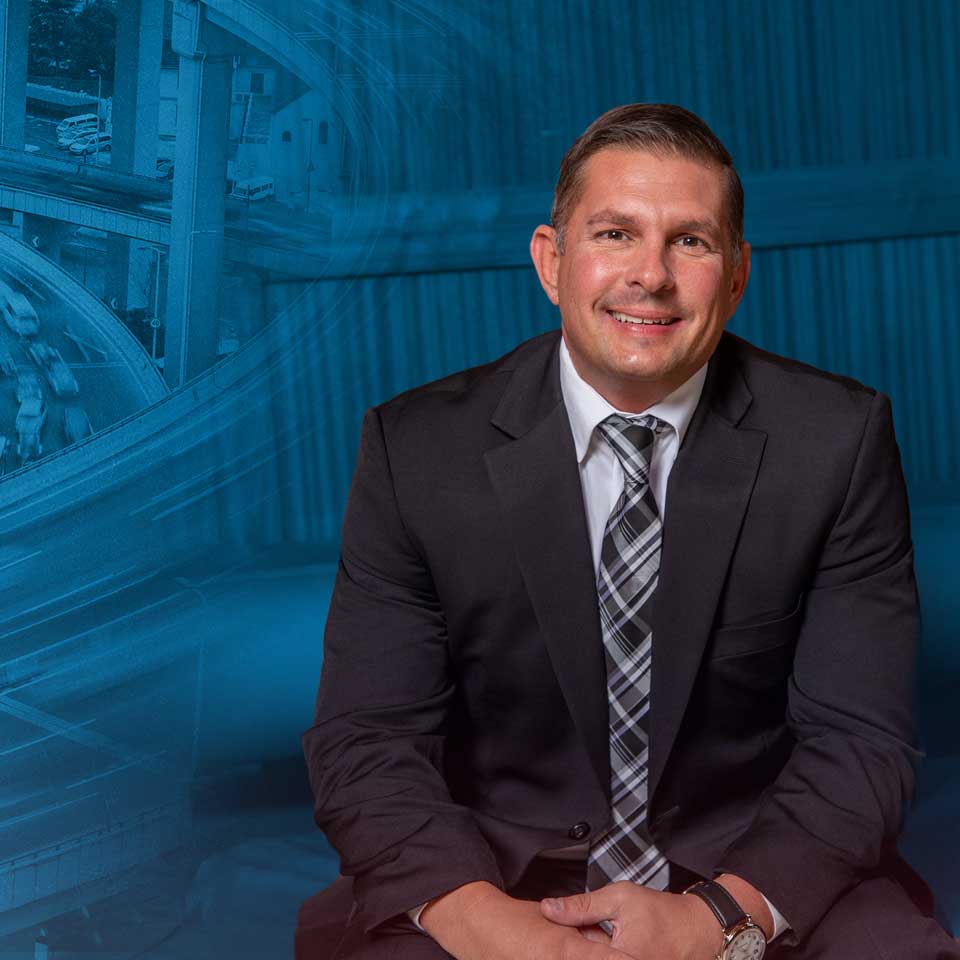Wills and Trusts Attorney in Boynton Beach
Fischetti Law Group is committed to helping individuals and families plan for the future and protect their legacy. Wills and trusts are an integral part of the estate planning process. A Boynton Beach wills and trusts attorney can help you set down your wishes and ensure that all documents are completed properly.
No matter your age, income level, or assets, it is in your best interest to have a will. Revocable or irrevocable trusts can provide additional protection for your assets and increase the chances of avoiding the probate process.
Learn how an estate planning lawyer can help with wills, trusts, and other aspects of your estate plan. Contact Fischetti Law Group at 833-645-3247 (833-MIKE-247) today for a FREE 20–30 minute consultation. Our wills and trusts attorneys serve clients in Boynton Beach, West Palm Beach, and all of South Florida.
What Is a Will?
A will (also known as a last will and testament) is a document that specifies who receives your assets in the event of your death. The person making a will is known as the testator, while the individuals or entities named in the will are beneficiaries.
Common examples of beneficiaries in a will include family members, friends, and favorite charities. You may also provide for minor children or even a beloved pet in your will.
In Florida, wills need to meet stringent requirements to be considered valid. Without a knowledgeable lawyer, you run the risk of making mistakes that could tie up the estate in court or even get your will thrown out. Our wills and trusts attorney can help you meet all of the following requirements:
Age & Capacity
- Testators must be at least 18 years old (or an emancipated minor).
- All testators must be of sound mind (i.e., they have the capacity to make decisions and understand the ramifications).
Signing & Witness Requirements
- Valid wills must be in writing. Oral wills (also called nuncupative will) and unwitnessed wills written entirely by hand (known as a holographic will) are not considered valid in Florida.
- The will must be signed by the testator at the end.
- Alternatively, the testator’s name may be “subscribed at the end of the will by some other person in the testator’s presence and by the testator’s direction” (see Florida Statutes § 732.502).
- The testator must sign the will in the presence of two competent witnesses.
- Florida law does not prohibit beneficiaries from acting as witnesses to the signing of a will. However, it is generally best to have neutral witnesses to avoid disputes or conflicts of interest.
Self-Proving Wills & Notarization
- In Florida, wills do not need to be notarized to be considered valid. Florida Statutes § 732.503 provides a way for a will to be made “self-proving.” This means that the testator and witnesses sign notarized affidavits confirming that the will was executed in accordance with Florida law.
- Probate courts automatically accept self-proved wills without the need for additional witness testimony, which can streamline the process of probate.
Changes in Life Status
- A will is not automatically invalidated if the testator subsequently marries, has children, or adopts. If the will is not updated, children and spouses’ inheritance is determined by Florida’s intestate succession law. This is a good reason to update your will if you marry or become a parent.
- Unless the testator specifies otherwise, the dissolution of a marriage voids a former spouse’s right to the estate.
Though it is not a legal requirement, your will should also name a personal representative to administer the estate after your passing. Failure to assign a personal representative can lead to disputes between family members and ultimately leave the decision up to the probate court.
Our wills and trusts lawyers can help you decide on a personal representative. We see to every last detail in your will so there is no room for confusion.
What Is a Living Will?
Your will formally sets out your wishes after death. A living will, meanwhile, lays out your wishes if you are in a persistent vegetative state or on life support and unable to communicate.
A living will is an important component of your healthcare directives. It answers key questions about how long you want to continue life support measures (such as a ventilator or feeding tube), as well as whether or not you want to be resuscitated.
Without a living will, these agonizing decisions fall to your family. This can be an immense burden if you haven’t discussed end-of-life matters with your loved ones. Having a living will ensures that your wishes are respected and saves your family the anguish of making life-or-death decisions without your guidance.

What Is a Trust?
A trust arranges for your assets to be transferred to one or more beneficiaries when you pass away. When setting up a trust, you will need to appoint a third party (known as a trustee) to hold and manage the trust. Trustees have a legal and fiduciary duty to manage the trust according to the wishes and instructions of the settlor (i.e., the person creating the trust; more commonly known as the grantor).
Fischetti Law Group can help you navigate the different types of trusts and determine the best options for your estate plan. These may include:
- Revocable living trust: With a revocable living trust, grantors generally act as the trustee while they are alive. This allows for maximum flexibility and control of assets during the grantor’s lifetime.
- Irrevocable trust: An irrevocable trust provides maximum protection from creditors, minimizes tax liability, and preserves eligibility for Medicaid and other income-based benefits. Once created, irrevocable trusts generally can’t be changed or revoked.
- Not sure which kind of trust you need? Read our guide to revocable vs. irrevocable trusts.
- Testamentary trust: A testamentary trust is created through a will. It is often ideal for parents to establish inheritance for their children.
- Life insurance trust: Creating an irrevocable life insurance trust protects the death benefit from claims by creditors. This ensures that your beneficiaries get the full value of the policy.
- Special needs trust: If you have a child or other beneficiary with special needs, a specially created trust can provide for their care after you’re gone. Funds are managed by the trustee to pay for medical treatment, housing, etc.
- Charitable trust: Do you want to leave money or property to charity upon your passing? An irrevocable charitable trust designates assets for charity. You can also deduct these contributions from your taxes.
- Spendthrift trust: A spendthrift trust may be appropriate if you have reason to believe that a beneficiary will not use the money or assets left to them wisely. Your trustee will manage the distribution of assets carefully so the estate isn’t squandered or pledged to creditors.
Personalized legal service sets Fischetti Law Group apart from other estate planning firms. We take the time to understand the specifics of your situation, including your family, your assets, and your legacy goals. You can count on our Boynton Beach wills and trusts lawyer to work with you closely and listen to you attentively so we can put all of the trusts you need in place.
Do I Need a Trust If I Have a Will?
Many people assume that their last will and testament provides sufficient direction and protection for their assets. This is a huge mistake, and one that can prove costly and stressful for beneficiaries.
A will alone only provides direction in the event of death; you need a Durable Power of Attorney and healthcare directives to make your wishes known if you are incapacitated. Furthermore, having a will doesn’t keep your estate out of probate court.
Probate is a time-consuming and expensive process where a local court (usually the circuit court for the county in which the decedent lived, such as Palm Beach County’s 15th Judicial Circuit Court) determines how to distribute the assets of an estate. Even if a will is properly executed, assets are not simply transferred to the beneficiaries. The court needs to provide authorization to the personal representative (whether named in the will or by the court) to distribute the assets.
It is in your best interest to avoid probate whenever possible. That is exactly what Fischetti Law Group can help you do. Based on your direction, we create trusts to transfer assets outside the probate process. This may allow the estate to bypass probate and avoid costly and contentious litigation.
Can You Do a Will and Trust on Your Own?
There is no legal requirement to have an attorney draft your will or create a trust. You can find software and free or low-cost services to handle most aspects of estate planning. But as the saying goes, you get what you pay for.
Florida courts can and do void wills if they contain major errors, especially when it comes to signing and witness requirements. People who try to create trusts on their own may fail to account for the unique complexities of their family situation, which can cause numerous problems down the road.
Bottom line: It is in your best interest, as well as the best interests of your loved ones and any other beneficiaries, to leave estate planning to a qualified lawyer. Attorneys at Fischetti Law Group can help tailor wills, trusts, and other parts of the estate plan to your exact needs and objectives.

Frequently Asked Questions About Wills & Trusts
Specifically, you need an estate planning lawyer. Estate planning attorneys devote their practice to wills and trusts. In addition to drafting the paperwork, a capable lawyer can provide you with guidance specific to your situation. This may include large estates, blended families, beneficiaries living out of state, business succession, and more.
Read More: How to Choose an Estate Planning Attorney
The fees charged by a wills attorney in Boynton Beach can vary. One of the most important factors a lawyer uses to calculate fees is the complexity of the will. Clients pay less for a simple will than they do a complex will.
At Fischetti Law Group, we provide a structured price list for individual wills, will and trust packages, and other estate planning services. We review this information upfront so you know what to expect when it comes to pricing.
Wills and trusts provide peace of mind and create a legacy for your heirs and beneficiaries. In that respect, having a will or trust (ideally both) really has no downside.
However, it is worth repeating that a will does not constitute a complete estate plan. It also doesn’t provide your loved ones with direction in cases other than death, such as a coma or incapacitating illness. One of the pros of having a will is that you have the basic foundation of an estate plan, but the con is that it gives some people a false sense of security.
Trusts provide added benefits, such as the potential for avoiding probate and greater control of how assets are distributed. The only real downside is that it can be time-consuming (and therefore costly) to retitle or reassign assets to a trust. A skilled trusts attorney can handle these tasks on your behalf and provide you with upfront pricing information so you can budget accordingly.
Neither a will nor a trust makes provisions for the guardianship of minor children. Lawyers well-versed in estate planning for families can help you designate a guardian or guardians in addition to creating a will and trusts.
The cost of a will can range from $0 if you draft the document yourself to several hundred dollars or more if you hire a wills lawyer to draft it for you. Cost is based on a number of factors if you retain an attorney, including their experience, the geographical location of the firm, and the complexity of the estate plan.
Wills do not need to be filed with the court to be executed properly, so there are no court costs related to a will while the testator is alive. However, there is a filing fee to initiate probate proceedings after the testator dies.
Contact a Boynton Beach Wills and Trusts Attorney Today
Don’t leave your legacy and your family’s future to chance. A professionally drafted will can provide clear directions for the administration of your estate, while creating one or more trusts can help secure your assets and avoid the cost and delays of probate.
At Fischetti Law Group, we pride ourselves on communication and personalization. Our client experience is defined by hands-on attention and commitment to your needs, goals, and concerns. We take a precise, detail-oriented approach to estate planning so there is no confusion and no disputes.
Do you need assistance with a will, trust, or estate plan? Fischetti Law Group offers a FREE 20–30 minute consultation for clients in South Florida. Call 833-645-3247 (833-MIKE-247) to speak with a wills and trusts attorney in Boynton Beach or Fort Pierce today.
